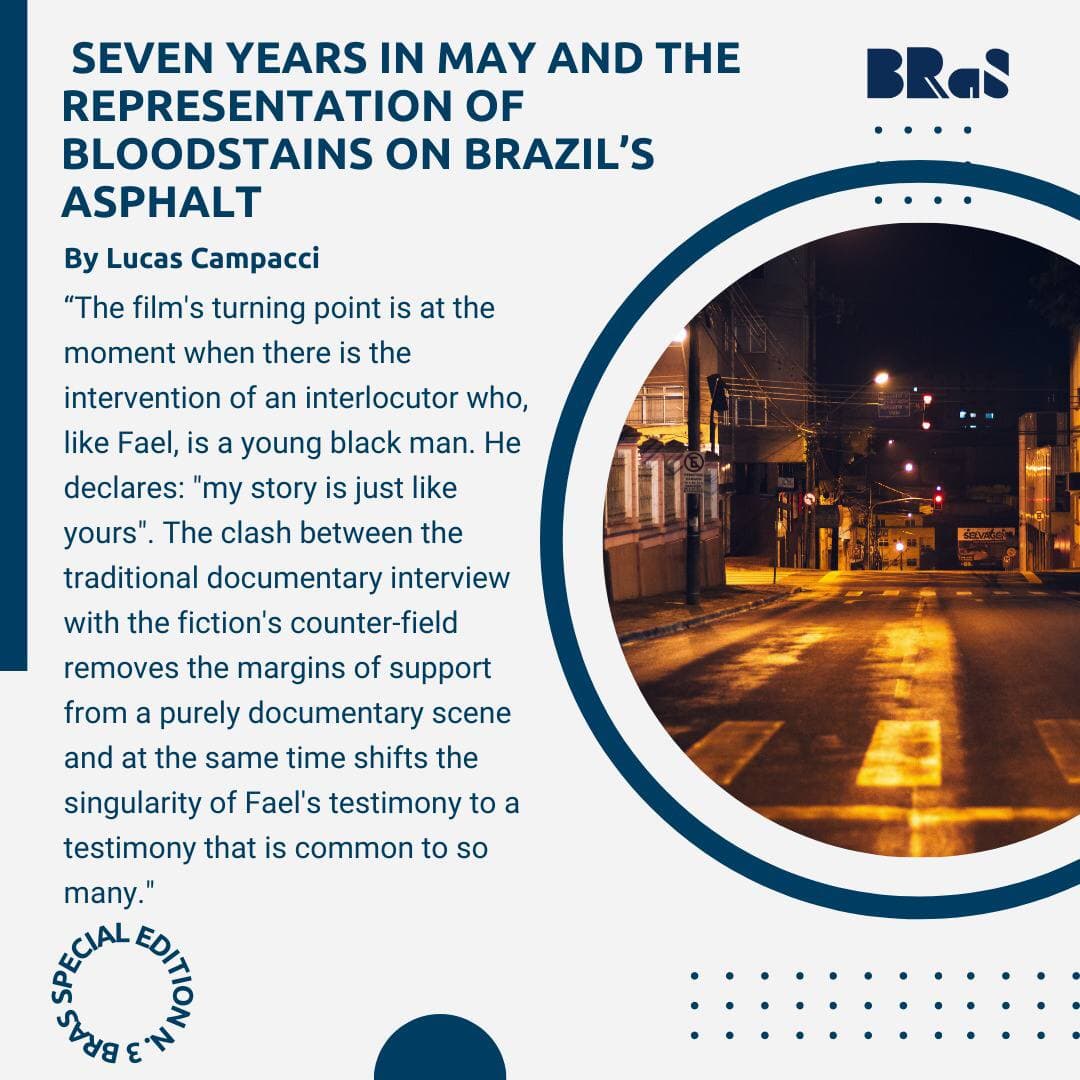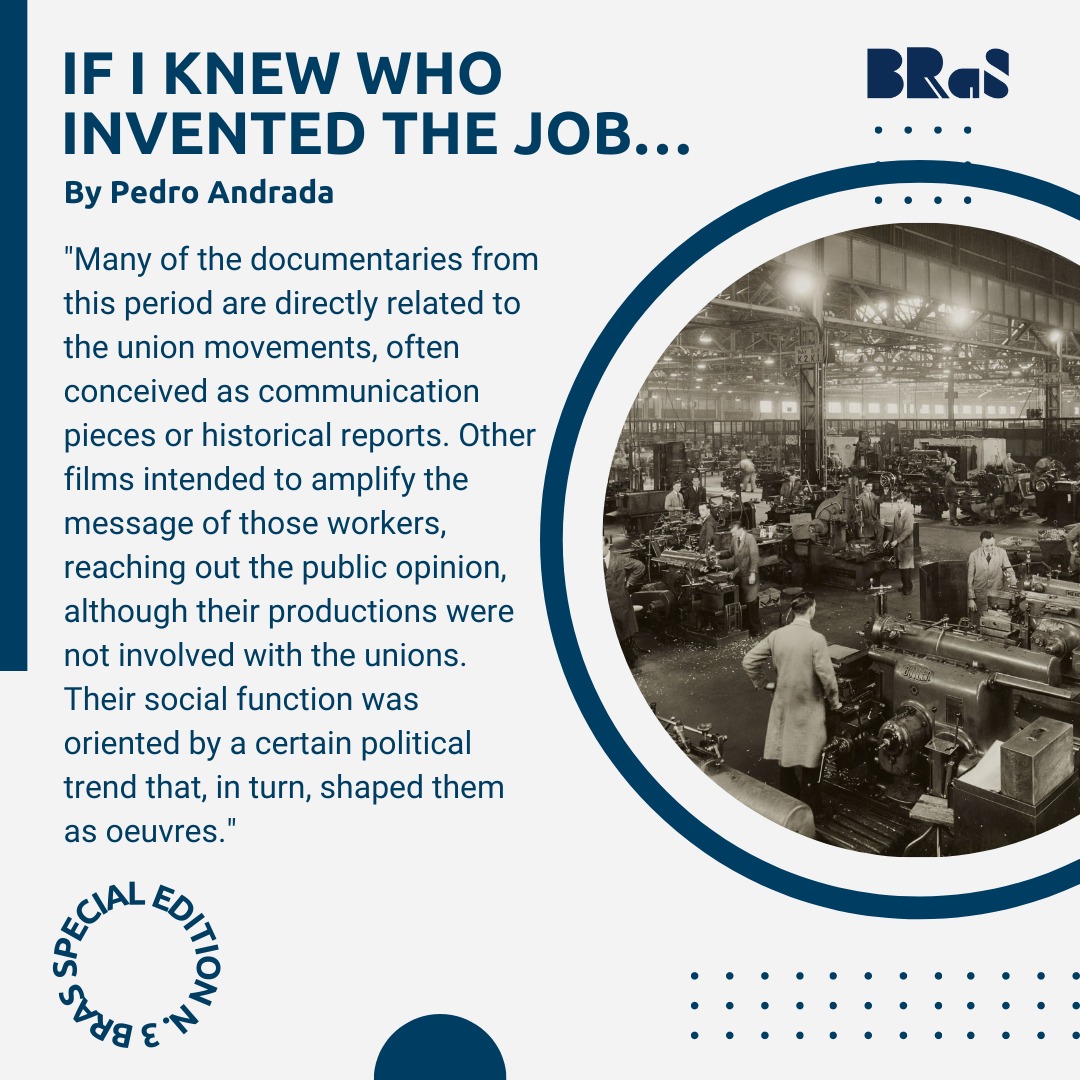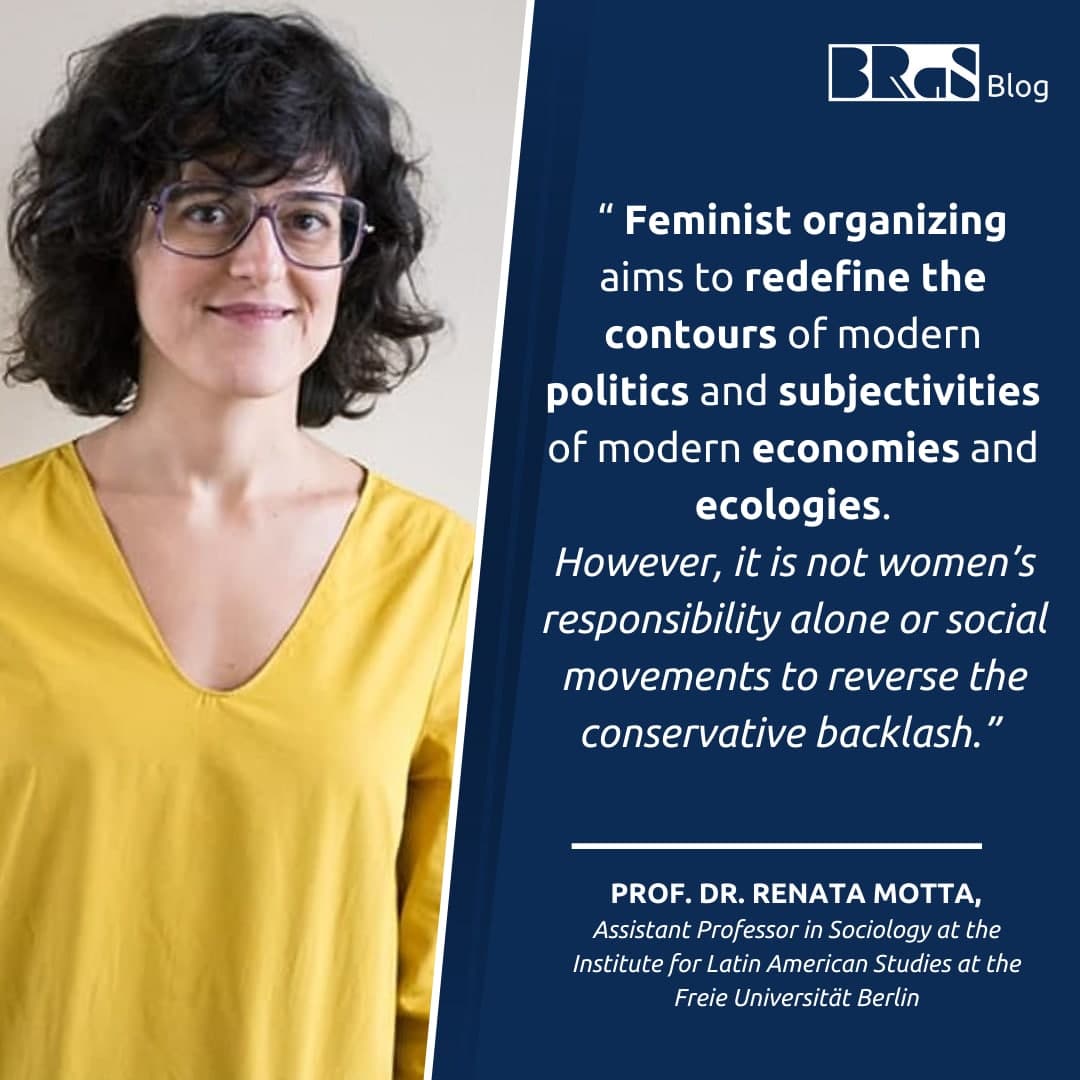by Larissa Migotto Brandolt*
Reviewed and edited by Anna Paula Bennech and Giovanna Imbernon
Organized by Flavia Batista da Silva
Democratic backsliding is defined as a process of gradual erosion of democratic institutions and norms (Przeworski, 2019). It is not constituted of a manifest event but rather a series of incremental steps towards democratic collapse. Przeworski analyzes the effects of different kinds of crises on democracy: economic, cultural, or political. By focusing on the global economic crises of 1929-32 and 2008-11, he argues that elections that occurred soon after the crisis favored the political right-wing. The author’s main point is that economy matters for democracy. Not only the income but the subsequent economic growth and inequality are factors that sharply distinguish the different outcomes of democracies that fell and the ones that survived. Therefore, “the democratic crisis is not just political; it has deep roots in the economy and in society” (Przeworski, 2019, 206). This article aims to analyze how Brazil illustrates the concept of democratic backsliding, focusing on its current economic situation.
Brazil’s democracy started to show signs of democratic backsliding after Dilma Rousseff’s impeachment in 2016, an episode that many considered a “parliamentary coup” because of the weak (or even lack) of evidence of any crime committed[1]. As a result, her vice-president, Michel Temer (2016-2018), became Brazil’s president, and a neoliberal agenda was revived, with a series of economic reforms and privatization of key sectors being discussed. Moreover, an amendment to the constitution imposing a 20-year federal spending cap has directly impacted social programs, alongside regressive counter-reforms to labor laws and welfare programs (FASE, 2017). Later, in the 2018 Brazilian elections, Jair Bolsonaro, a far-right former army captain, was elected with 56% of the valid votes. Despite being a member of the Congress for years, Bolsonaro showed his government’s interventionist position in the economy. During the 2018 elections campaign, he used the neoliberal discourse to attract voters, even affirming on different occasions that he “doesn’t know anything about the economy” (Globo 2018) and that any economic questions should be addressed to his future Minister of Economy, Paulo Guedes.
An economist from the Chicago School, Guedes has the financial market support and has been frequently involved in polemical statements during his time in the government. He has called COVID-19 the “Chinese virus[2],” lamented the longevity of the Brazilian population (Naldis, 2021), called public servants “parasites,” as well as complained that “even domestic workers could go to Disney years ago,” (Ventura, 2020) a clear critique about the socio-economic rights agenda advanced by the Workers’ Party (PT, in Portuguese) since 2003. Besides provocative statements, it is far more significant to analyze current socio-economic data in Brazil to fairly assess the Bolsonaro-Guedes economic performance. The numbers do not look good regarding unemployment, inflation, and inequality levels, just to mention a few indicators.
Unemployment reached a record rate of 14.7% in the first quarter of 2021, reaching a new record of 14.8 million people unemployed. In addition, the discouraged population (those who gave up looking for work) also reached a record level, with 6 million people (Alvarenga & Silveira, 2021). Concerning inequality, Brazil not only remains one of the most unequal countries in the world, but the situation is getting even worse. In 2020, following a global trend accelerated by the coronavirus pandemic, the income concentration increased and reached the worst level in at least two decades. Moreover, almost half of the country’s wealth went to the wealthiest 1% of the population. Another frequent indicator to measure inequality is the Gini coefficient (a higher Gini coefficient means greater inequality). Between 2019 and 2020, the indicator rose from 88.2 to 89 in Brazil. In 2010, it had dropped to a minimum level of 82.2 (The Global Wealth Report 2021).
As a result of the low levels of employment and income, as well as rising inequality in the country, Brazil is about to return to the World Hunger Map with 19 million people suffering from hunger, nearly twice the 10 million in 2018. Besides this, 117 million faced food insecurity in 2020 (more than half the population); two years before, it was 85 million (Londoño & Milhorance, 2021). During the pandemic, the government’s economic assistance was less than expected, and with the inflation increase, the purchasing power decreased significantly (Goulart, 2021). The inflation rate was the highest for May in 25 years and reached 8.06% in the last 12 months (from May 2020 to May 2021) (Alvarenga & Silveira, 2021). In June 2021, the National Electric Energy Agency decided to readjust by 52% the electricity bills. This price shock comes when the country has accumulated an increase of 87% in the price of soy oil, 52% in rice, 38% in meat, 31% in black beans, 10% in milk, and 24% in cooking gas last year. It is noteworthy that the increase in electricity bills is considered a regressive economic policy since it has a proportionally greater impact on the poorest than the wealthiest population (Carrança, 2021). In sum, these numbers help to paint a dire picture of the social and economic situation since the Bolsonaro-Guedes administration took office.
The economic response to COVID-19 has been another aggravating aspect of the pandemic outcomes so far. Bolsonaro downplayed the virus, calling it a “little flu,” spreading misinformation and promoting drugs that were not scientifically proven to be effective against the disease. He also has questioned the efficacy of the vaccines, refused to buy them, and is now being investigated for bribes in the negotiations. The result is that Brazil has now accumulated more than 500 thousand COVID-19 deaths[3]. Part of this tragedy is due to the weak economic assistance during the pandemic: Bolsonaro proposed, in March 2020, a stimulus check of R$ 200 (around $40). For comparison, the federal minimum wage for 40h/week occupation is R$1,100. However, through the National Congress action and civil society pressure, the amount of assistance rose to R$ 600, against the president’s initial wishes (Catraca Livre, 2020).
In conclusion, from “Brazil takes off” in 2009 to the latest “Brazil’s dismal decade,” published in June 2021, The Economist’s magazine covers represent an accurate portrait of the economic disaster faced by the biggest South American nation in recent years. Far from holding a fatalistic view, the ongoing dire situation is not prognostic for a country that has transitioned from dictatorship to democracy in the 1980s, overcome unimaginable inflation in the 1990s, lifted 30 million out of extreme poverty in the 2000s, and showed to the world that it could be an important and responsible regional and global player in international organizations such as Mercosur, Unasur and BRICS. This scenario is all evidence of Brazil’s capacity to reinvent itself in the face of adversity.
Nancy Bermeo argues that “as long as some electoral competition takes place, power can be clawed back” (Bermeo, 2016, 17). Countermobilization against democratic regression can occur when civil society is allowed space. For Bermeo, backsliding reflects incentive structures; consequently, changed incentives can reverse these negative trends. Therefore, to invert the backsliding tendency, organized civil society movements are vital, especially the voice of the marginalized communities, the most impacted with the current economic policies. Furthermore, the energetic demonstrations on the streets rejecting Bolsonaro’s policies and demand Brazilian citizens’ right to have a “vaccine in the arm and food on the plate.”
Finally, if Bolsonaro’s consistent polarizing, racist, sexist, and anti-democratic remarks were not enough to prevent people from casting their vote for him in 2018, perhaps his blatant economic failures in the last three years – and particularly during the pandemic – will have such an effect.
[1] Hertzman (2016) also highlights how sexism played a role in the impeachment process against Rousseff.
[2] It is important to remember that China is currently Brazil’s main trade partner.
[3] The worst number of deaths per million people in the G20 (Statista).
References
Alvarenga, Darlan, and Silveira, Daniel. 2021. “Desemprego sobe para 14,7% no 1º trimestre e atinge recorde de 14,8 milhões de brasileiros.” G1 Economia, May 27, 2021. https://g1.globo.com/economia/noticia/2021/05/27/desemprego-atinge-147percent-no-1o-trimestre-diz-ibge.ghtml.
Alvarenga, Darlan, and Silveira, Daniel. 2021. “IPCA: inflação é a maior para maio em 25 anos e atinge 8,06% em 12 meses.” G1 Economia, June 9, 2021. https://g1.globo.com/economia/noticia/2021/06/09/ipca-inflacao-acelera-em-maio-e-chega-a-083percent.ghtml.
Bermeo, Nancy. 2016. “On Democratic Backsliding.” Journal of Democracy 27(1): 5-19.
Carrança, Thais. 2021. “Na contramão do PIB, renda do brasileiro cai 10% com inflação em alta e desemprego recorde.” BBC News Brasil, June 10, 2021. https://www.bbc.com/portuguese/brasil-57422466.
Carrança, Thais. 2021. “’Racionamento via preço’: como alta de 52% na bandeira da conta de luz vai pesar no seu bolso.” BBC News Brasil, June 29, 2021. https://www.bbc.com/portuguese/brasil-57659673.
Catraca Livre. 2020. “Bolsonaro diz na ONU que auxílio no Brasil foi de mil dólares e revolta web.” Catraca Livre, September 22, 2020. https://catracalivre.com.br/cidadania/bolsonaro-diz-que-auxilio-no-brasil-foi-de-mil-dolares-e-revolta-web/.
Credit Suisse. 2021. “The Global Wealth Report 2021.” June, 2021. https://www.credit-suisse.com/about-us/en/reports-research/global-wealth-report.html.
Federação de Órgãos para Assistência Social e Educacional (FASE). 2017. “A year after the coup: Brazil back on the world hunger map?” Last modified September 4, 2017. https://fase.org.br/pt/informe-se/artigos/a-year-after-the-coup-brazil-back-on-the-world-hunger-map/.
Folha de São Paulo. 2021. “Vacina no braço e comida no prato.” Accessed July 11, 2021. https://www1.folha.uol.com.br/opiniao/2021/04/vacina-no-braco-e-comida-no-prato.shtml.
Globo. 2018. “Não entendo mesmo de economia.” Accessed July 11, 2021. https://oglobo.globo.com/brasil/exclusivo-nao-entendo-mesmo-de-economia-afirma-jair-bolsonaro-22908268.
Goulart, Josette. 2021. “Brasil volta ao mapa da fome e começa a chegar ajuda global.” Revista Veja, April 30, 2021. https://veja.abril.com.br/blog/radar-economico/brasil-volta-ao-mapa-da-fome-e-comeca-a-chegar-ajuda-global/.
Hertzman, Marc. 2016. “The Campaign to Impeach Brazil’s President Is Viciously Sexist.” Accessed July 11, 2021. https://www.thecut.com/2016/04/brazil-sexist-impeachment-campaign-dilma-rousseff.html.
Londoño, Ernesto; Milhorance, Flávia. 2021. “Ravaged by Covid, Brazil Faces a Hunger Epidemic.” The New York Times, April 23, 2021. https://www.nytimes.com/2021/04/23/world/americas/covid-brazil-hunger.html.
Naldis, Guilherme. 2021. “Guedes critica aumento da expectativa de vida: “Todo mundo quer viver 100 anos.” IG Economia, April 27, 2021. https://economia.ig.com.br/2021-04-27/paulo-guedes-aumento-expectativa-de-vida.html.
Saraiva, Alessandra, and Villas Boas, Bruno. 2020. “IBGE confirma que país voltou ao Mapa da Fome em 2018, diz pesquisador.” Valor Econômico, September 17, 2020. https://valor.globo.com/brasil/noticia/2020/09/17/ibge-confirma-que-pas-voltou-ao-mapa-da-fome-em-2018-diz-pesquisador.ghtml.
Statista. 2021. “Coronavirus (COVID-19) deaths worldwide per one million population as of July 8, 2021, by country.” Accessed July 11, 2021. https://www.statista.com/statistics/1104709/coronavirus-deaths-worldwide-per-million-inhabitants/.
Steger, Manfred B., and Roy, Ravi. K. 2010. Neoliberalism: A Very Short Introduction. Oxford University Press.
The Economist. 2009. “Brazil Takes Off.” Accessed July 11, 2021. https://www.economist.com/leaders/2009/11/12/brazil-takes-off.
The Economist. 2021. “Brazil’s dire decade: Jair Bolsonaro is not the only reason his country is in a ditch.” Accessed July 11, 2021. https://www.economist.com/leaders/2021/06/03/jair-bolsonaro-is-not-the-only-reason-his-country-is-in-a-ditch.
Ventura, Manoel. 2020. “Guedes diz que dólar alto é bom: ‘empregada doméstica estava indo para Disney, uma festa danada.’” Globo, February 12, 2020. https://oglobo.globo.com/economia/guedes-diz-que-dolar-alto-bom-empregada-domestica-estava-indo-para-disney-uma-festa-danada-24245365.
* Larissa Migotto Brandolt holds a B.A. in International Relations from the Universidade do Vale do Rio dos Sinos, Brazil. She is currently an M.A. student at the University of Illinois at Urbana-Champaign in Latin American and Caribbean Studies. Larissa’s main topics of interest include Comparative Politics, Political Economy, Political Behavior, Democracy, and Civil Society Organizations. E-mail: larissa5@illinois.edu.








